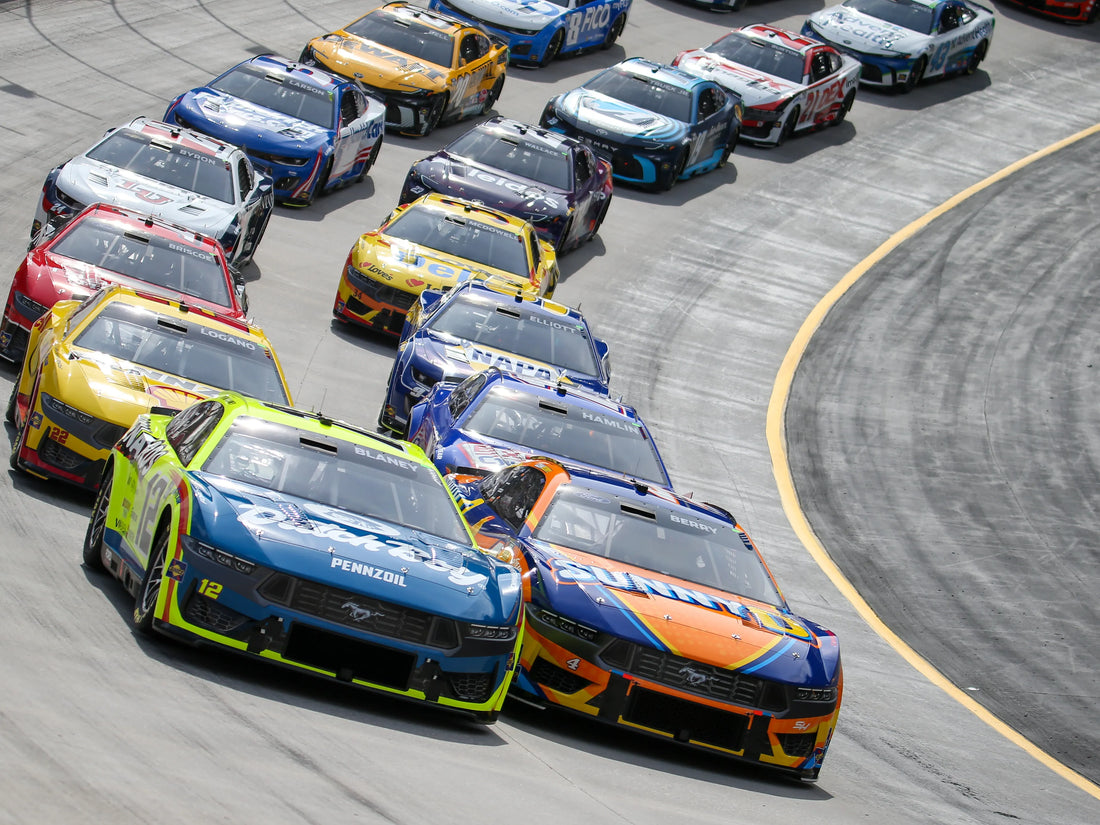
Sponsorship Breeds Talent, Wait, That's Not The Phrase...
Share
“It’s not a success game, it’s a money game.”
In a traditional sport, [you'd think] the most talented driver would get the ride, or at least the opportunity. But again, NASCAR and its business model prove to be anything but traditional. Have you ever heard the phrase' hard work beats talent'? Well in this case, access to sponsorship beats talent every damn time in NASCAR.
Let me be clear, I’m not talking about endorsements. As an avid sports fan, this was initially confusing to me. In sports, an endorsement is a contractual agreement where an athlete or other sports figure publicly supports or promotes a specific product or service in exchange for compensation. One would think that since the drivers are moving billboards, those are their endorsements and an income stream. It’s a little more complicated than that.
In NASCAR, sponsorship for a race team is a commercial partnership where a company provides financial resources or other assets in exchange for visibility and brand exposure on the team's race cars, drivers, and related activities. This support helps the team fund its operations and racing activities. I’m not privy to the driver's contracts, so while I’m sure some big names have it structured for sponsorship in their contract, the primary expectation is for operational capital. And if we look at the teams' depth charts, the smaller organizations are living and breathing on sponsorship dollars to compete. Of course, money talks and talent walks.
Hear me out: What other sport has its "athletes" responsible for operational capital? When an NBA player is drafted to a team, is there an expectation that they will bring basketball talent, not operational capital, to ensure the games happen? In NASCAR, it seems like drivers are “drafted” based on the operational capital they can bring in, and then, if they are talented, it's a bonus; but talent is not necessary as long as the check clears.
Also, when we are talking about Sponsorship in the traditional sense, it’s a business decision, specifically a marketing one. I may be a rookie in NASCAR, but marketing strategies: not my first rodeo. It’s a science, meaning that businesses aren’t just writing blank checks. It has to make sense. What does this sponsorship do to build and solidify their audience, and does that mirror what NASCAR brings to the table? Also, NASCAR fans [in theory] should get something out of this: their interests align, it’s something they could buy, or something they should know about. Looking at where we are, I’m not sure that’s the case. So long as it pays, it works. Now, if the Sponsor is part of the driver’s immediate network, then they may do one favor, but if you can’t prove ROI, it’s a one-time deal. Is this why we aren’t seeing stability in sponsorships? With this pay-to-play model, are we expecting the drivers to be business analysts and salespeople? And they are professional drivers? There are way too many highly intricate variables for my liking. It’s sounding a little less like a sport and more like a billionaire’s simulation game if that’s the case.
Suppose a driver has an established relationship or can bring sponsorship to a team through their network. Does their talent matter? And if a driver is less connected, are they shit out of luck?
Drivers are more desirable to teams if they can bring in dollars. Of course, you can make the argument that veteran drivers like Denny Hamlin, Joey Logano, and Kyle Busch bring in sponsorship based on their skills. Ok, I’ll take that, but what if they were starting right now? Does a new driver need talent or money, money being sponsorship? Is your initial shot in NASCAR based on your bank account? Brings me back to my previous article: maybe the car is the true athlete. All you need is a little cash and a decent ride; it doesn’t matter who’s in the driver's seat.
Is the reliance on sponsorship clouding the judgment of teams and ownership? Is this deterring actual competition and innovation? I’m just a measly rookie, but these are definitely up for debate. If we want NASCAR to come back stronger than a '90s trend, the first action item should be to address a strange and outdated sponsorship model.
